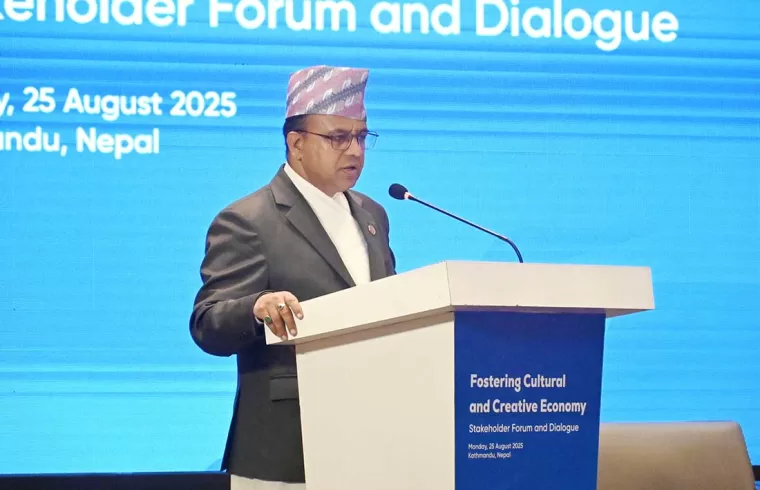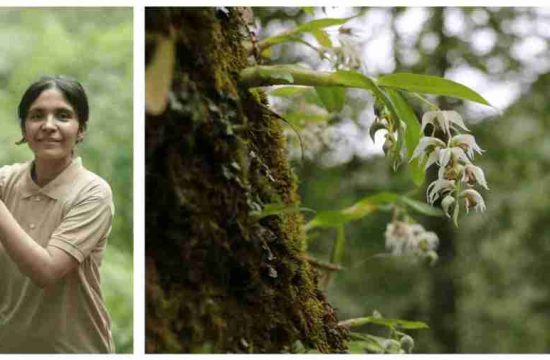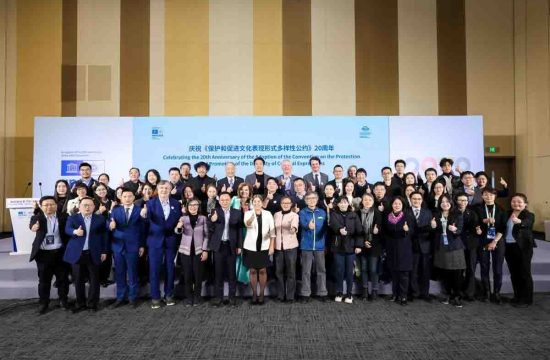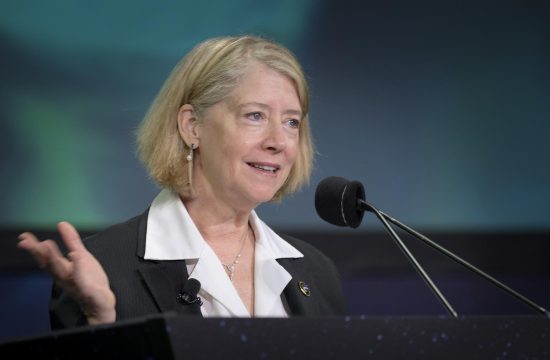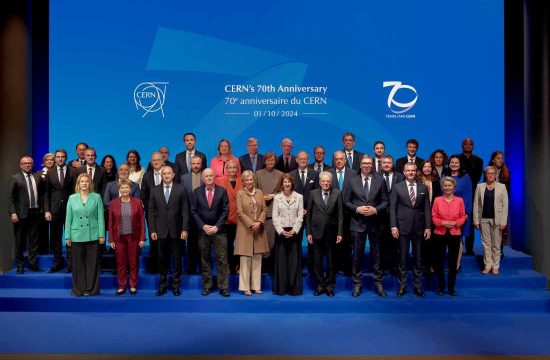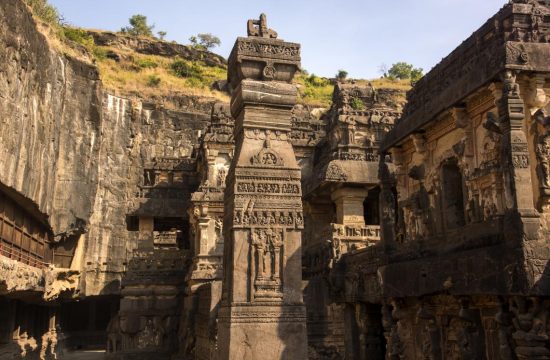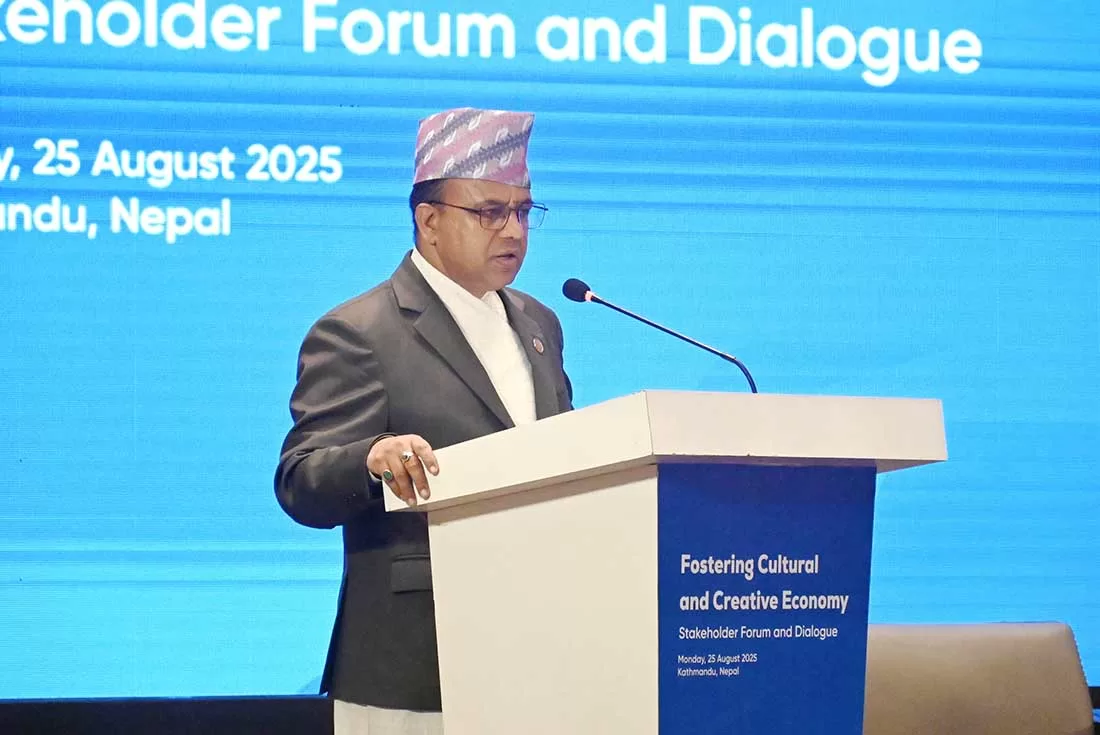
Kathmandu — In a landmark initiative to promote Nepal’s cultural and creative industries, UNESCO, the International Labour Organization (ILO), and the British Council, in partnership with the Ministry of Culture, Tourism and Civil Aviation and FCA Nepal, convened a two-day Stakeholder Forum and Dialogue in Kathmandu.
The event brought together key voices from government, academia, civil society, and the private sector to explore pathways for transforming Nepal’s rich cultural heritage into a sustainable and inclusive economic engine.
Addressing the forum, Hon. Badri Prashad Pandey, Minister for Culture, Tourism and Civil Aviation, announced that the ministry is currently updating the Cultural Policy of 2010 to better reflect the evolving needs of Nepal’s creative sector.
“We recognize the importance of cultural and creative industries in shaping our economy and identity. Our new policy will ensure that the voices of practitioners are heard and reflected in our laws and frameworks,” he said.
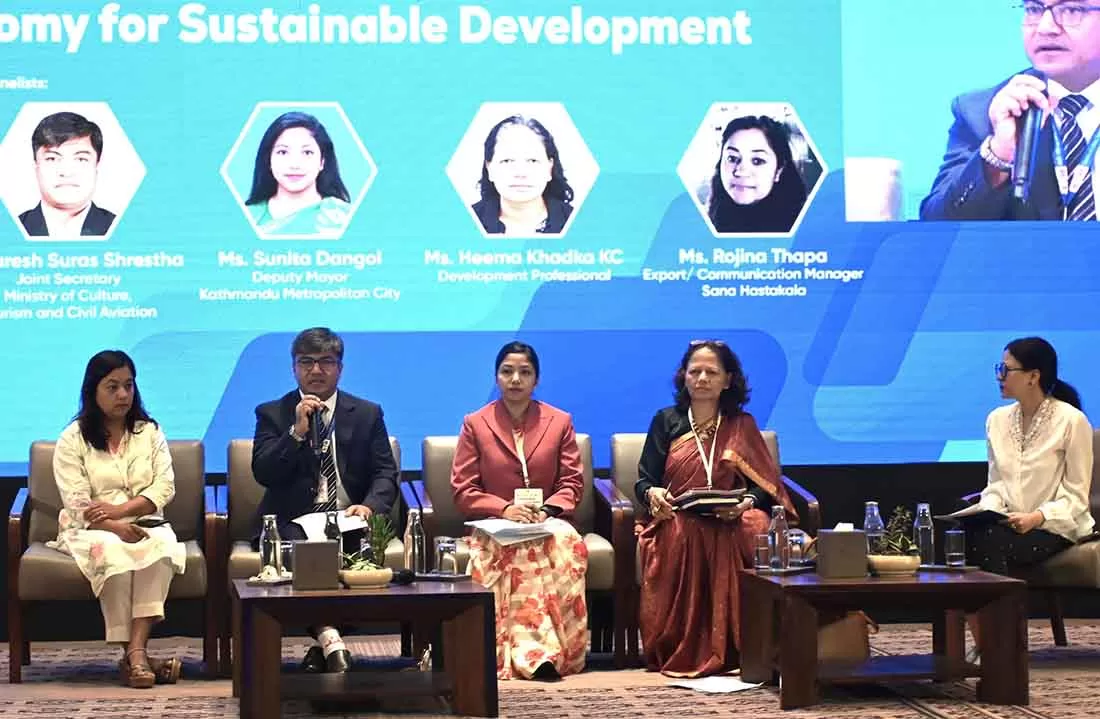
The forum also unveiled findings from a Baseline Assessment of Cultural and Creative Industries in Kathmandu Valley, covering Kathmandu Metropolitan City, Lalitpur Metropolitan City, and Bhaktapur Municipality. The assessment focused on seven creative fields defined by UNESCO’s Creative Cities Network: Crafts and Folk Art, Media Arts, Film, Design, Gastronomy, Literature, and Music.
Key insights from the report highlighted the vibrancy of Kathmandu’s creative sector, with youth making up 84% of the 959 respondents. The global market value of Nepali handicrafts reached NPR 12 billion in 2023, underscoring the sector’s growing international relevance. The report also emphasized the sector’s contribution to the circular economy and its inherent sustainability.
UNESCO Representative to Nepal, Jaco du Toit, remarked, “Creative and cultural industries are powerful drivers of economic growth and decent employment, especially for women and youth. Nepal has the potential to lead in this space by harnessing its diverse cultural assets.”
British Council Country Director Rustom Mody added, “This initiative fills a critical knowledge gap and helps define the roles of government, development partners, and private stakeholders in building a thriving creative economy. Culture is a proven catalyst for sustainable development.”
A highlight of the event was the formal handover of the final assessment report to Minister Pandey, Deputy Mayor of Kathmandu Sunita Dangol, and representatives from Lalitpur Metropolitan City.
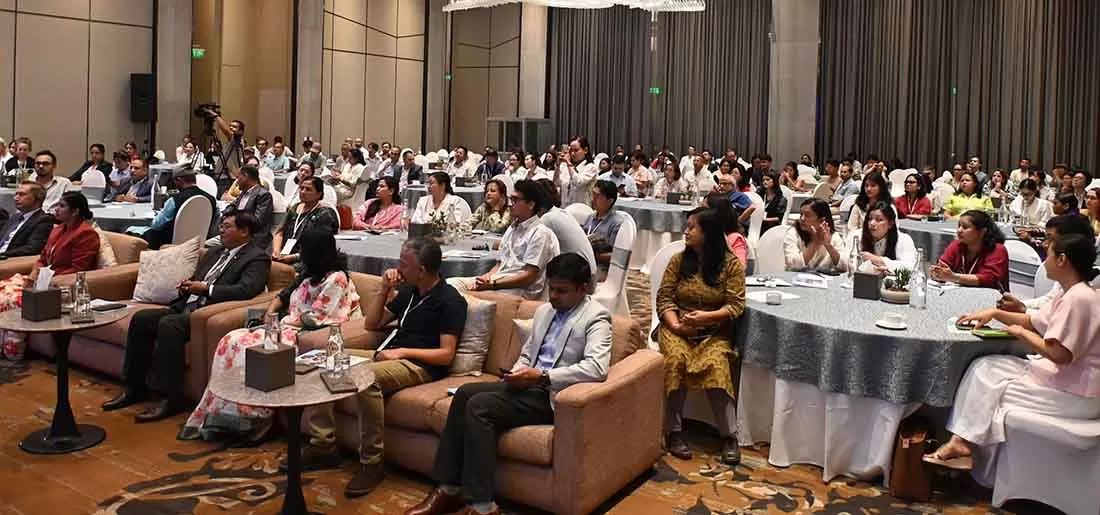
ILO Country Director Numan Özcan emphasized the sector’s potential to create inclusive job opportunities while preserving Nepal’s heritage. “We are committed to supporting policies that ensure fair working conditions and social protection in the creative industries,” he said.
The forum also featured a panel discussion on creative economy strategies for sustainable development, focusing on national policy frameworks, local government roles, entrepreneurship, and cultural preservation.
Panelist Rojina Thapa, Export and Communication Manager at Sana Hastakala, highlighted challenges in the handicraft sector, including limited market access, financing gaps, and raw material shortages. She stressed the need to integrate handicrafts into school curricula and promote them as viable livelihoods for youth.
The event concluded with a renewed commitment among stakeholders to collaborate and invest in Nepal’s creative economy, marking a new chapter in cultural policy and innovation.

